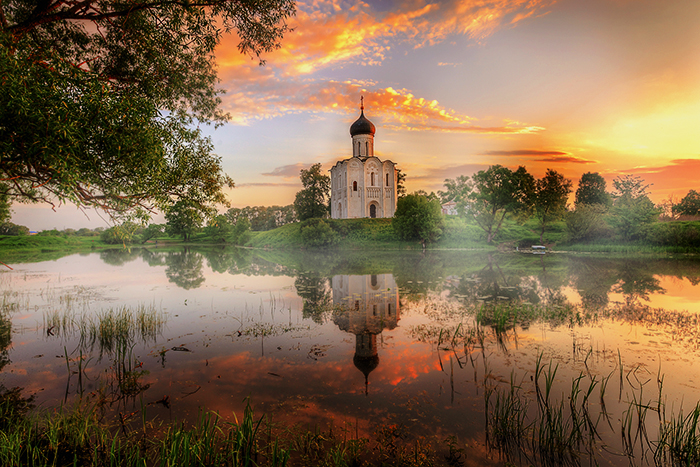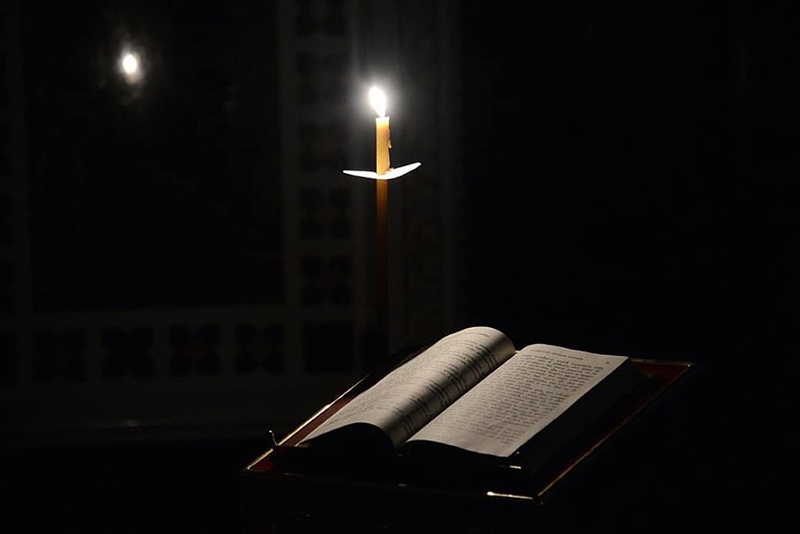
Every Sunday we confess in the Creed that the Church is “one, holy, catholic, and apostolic”. But what do we mean when we say that the Church is holy? Obviously it cannot mean that we believe that everyone in the Church is of exemplary behaviour. Sadly, the history of the Church, both ancient and modern, is replete with scandals and stuffed with prima facie evidence that all Christians do not always behave in saintly ways, as one learns after spending even a little bit of time on Facebook. So, what can we mean by confessing that the Church is holy?
The word “holy” in its original Hebrew denotes not so much ethical behaviour as divine ownership. Something that is holy belongs to God. For example, the people of Israel were holy in that God dwelt in their midst and claimed them as His own people. He was in covenant with them, and had bound Himself to them with cords of covenantal love, pledging to reward their faithfulness and punish their disobedience, and Israel formed God’s special inheritance. Their God, being the only God there was, heard the prayers of all people everywhere, including the call of the smallest sparrow that cried to Him, but He knew Israel with special intimacy. Israel belonged not to the nations of the world, but to Yahweh, the God of the world. Israel was holy.
In the same way, the Church is holy. People sometimes talk as if the Church replaced Israel, but it is more true to say that the Church is Israel—the faithful remnant of Israel who cleaved to God and His Messiah, to which a multitude of Gentiles later came and joined. Old Testament Israel was called by God to die as a nation that it might be reborn as a trans-national Church. Thus, the Church is holy in that the Church belongs to God, despite all her mistakes, sins, missteps, and flaws. The Church is not just another organization like the Red Cross or the Lions Club, but the Messianic people of God to which the living God has bound Himself in covenantal love.
More than that, the Church is holy because it is the body of Christ. Just as a man lives and works in the world through his body, so Christ lives and works His salvation in the world through His Church. It is Christ who reaches men with His truth, and regenerates them to God, and fills them with His Holy Spirit, and feeds and transforms them through His saving Eucharistic Chalice. The Church with its clergy is simply the means that Christ uses. The hands of the priest may do the actual baptizing, but it is Christ who forgives and regenerates. The Church therefore is holy because it is the epicenter of Christ’s saving grace, the sacramental center of the universe. The Church remains holy despite the failings and sins of its members because her divine Head lives and sanctifies the world through her.
But this means, of course, that the members who partake of the saving sacraments must strive to be holy in all their words and deeds. They must become what they are: in baptism, Christ brought them to Himself and filled them with His sanctifying Spirit. Now, each baptized Christian must endeavour to live out that baptism in holiness. Ultimately sacramental holiness must be manifested as experiential holiness. Through the Church’s sacramental mysteries, each baptized person becomes a saint, a holy one, and it is as such that the priest invites each one to come to the Chalice: “The holy things for the holy!”, the sanctified Gifts for those who strive to live in their baptismal sanctification. Christians must strive to live as the saints they are, for only so can the Gospel be adorned with credibility in the eyes of the world. Nietzsche once said that he would believe in the Redeemer when His people looked a lot more redeemed. It is a fair challenge, and Christ said the same: “By this all men will know you are My disciples, if you have love for one another” (John 13:35). There is nothing for it: we must be holier than those around us, if the world will be brought to faith.
Two practical points follow from this.
First of all, the sanctifying power of Christ in the sacraments works independently of the sanctity of the clergy performing the sacraments. Not everyone always believed this. In the early church a group existed known to the historians as “the Donatists”, and these Donatists believed that if a clergyman fell into sin then his sacraments were null and void, and possessed no power to transform. Thus, if a priest lived a secret life of sin, then the Sunday Eucharist he served was no true Eucharist, and the people unknowingly received not Christ’s Body and Blood, but mere untransformed bread and wine. No one he baptized really experienced the new birth or the forgiveness of sins, and the absolutions he offered in confession were mere words containing no promise of forgiveness. If this was true, then no certainty at all was possible in the Church, but doubt covered all. But happily the priest’s secret sins affect only himself, and Christ still works through His Church to save all who come in penitent faith, despite the unworthiness of the clergy.
Secondly, we are called to live holy lives like the saints we are. But we must be clear what this holiness consists of. It does not consist of rigour in keeping rules (helpful as rules are), but of humble love. Without such love, rigorous rule-keeping is useless. The Pharisees kept the rules with great zeal and success, but some did not combine it with humble love, and Christ declared that such were children of hell. The world does not need more rules or more religious people. It needs more saints—which is to say, it needs more love. It needs us to show them the holiness that Christ has bestowed upon us in baptism, and to which He calls. Only so can the world come to believe in the Lord, the Holy One of Israel.
Source: https://blogs.ancientfaith.com/nootherfoundation/the-marks-of-the-church-the-church-as-holy/



